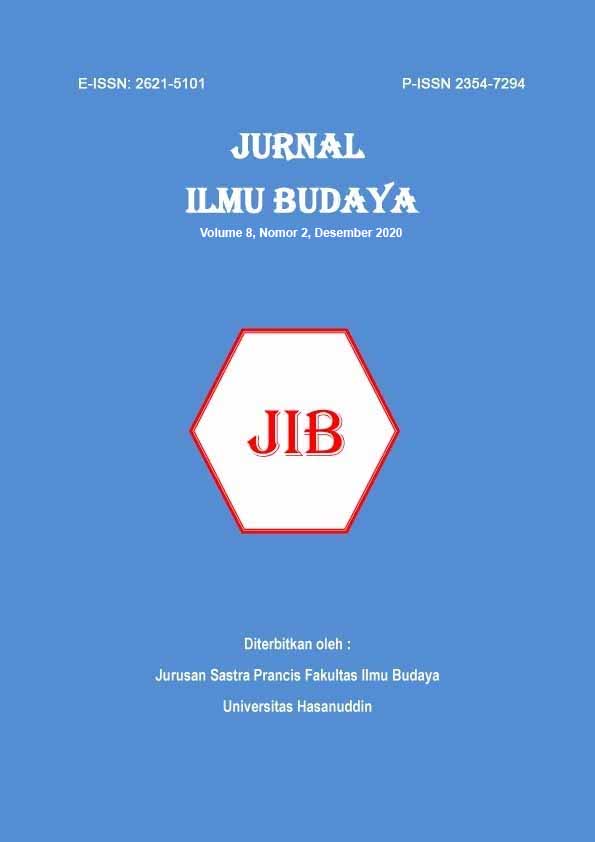“MANGAN ORA MANGAN, SING PENTING KUMPUL” (MAKAN TIDAK MAKAN YANG PENTING KUMPUL) TINJAUAN FILOSOFIS “AKU DAN LIYAN” DALAM GAGASAN TOGETHERNESS PARA FILSUF BARAT
DOI:
https://doi.org/10.34050/jib.v8i2.10984Keywords:
Javanese people, Wisdom, Togetherness, Relationship, CrossingAbstract
Javanese people are known for their rich and profound wisdom in life. Like a water source that never stops flowing, Javanese people never run out of sources of wisdom. One of the policies of the Javanese community that has been around for a long time but remains actual until now is “mangan ora mangan sing penting kumpul”. Today, the rapid development of technology makes people more individualistic and ignores the importance of togetherness. This is the background and purpose of this writing, namely as a reminder of the value of togetherness and see the depth of meaning contained in the philosophy of “mangan ora mangan sing penting kumpul”. The writer wants to see this philosophy in terms of the relationship between Eastern and Western philosophy and present it using narrative methods. Previous studies show that philosophy of "mangan ora mangan sing penting kumpul" has never been seen in relation with Eastern and Western philosophy. In this article, the writer would like to present a different discussion, namely by looking at the correlation of philosophy "mangan ora mangan sing penting kumpul" with a review of Western philosophers' thoughts. Finally, the exploration of the meaning and depth of the philosophy of “mangan ora mangan sing penting kumpul” brings the writer to a discovery, namely “mangan ora magan sing penting kumpul” as a crossing of subjects - objects.
References
Aquila, Richard E, 1992."On Plotinus and the "Togetherness" of Consciousness" Journal of the History of Philosophy, 30, (1).
Bazzano, Manu, 2014. "Togetherness: intersubjectivity revisited" Jurnal Person-Centered & Experiential Psychotherapies. 13, (3).
Bernstein, Richard J, 1981. "Human Beings: Plurality and Togetherness" Jurnal The Review of Metaphysics. 35. (2).
Herusatoto, Budiono, 1987. Simbolisme dalam Budaya Jawa, Yogyakarta: PT. Hanindita Graha Widya.
Ihsan, Fatimah, 2018. "Solidaritas Sosial Masyarakat Jawa Perantau di Kampung Jawa Kota Tanjungpinang" Jurnal Solidaritas Sosial Masyarakat Jawa Perantau di Kampung Jawa Kota Tanjungpinang.
Irawan, Yusak, 2014. "Subjective Well Being in Javanese Collectivistic Culture". Proceeding International Conference of Revisited Asian Society. Christina Siwi dan Monica Eviandaru (eds.).
James, William, 1977. A Pluralistic Universe. Cambridge: Harvard University Press.
Maknun, T., Hasjim, M., Muslimat, M., and Hasyim, M. 2019. The form of the traditional bamboo house in the Makassar culture: A cultural semiotic study. Semiotica. In press. https://doi.org/10.1515/sem-2017-0162
Modood, Tariq, 2001. “Their liberalism and our multiculturalism?” British Journal of Politics and International Relations. 3, (2).
Ng, Nawi, et. Al., 2012. "Is self-rated health an independent index for mortality among older people in Indonesia?" Jurnal PloS one. 7, (4).
Riyanto, Armada, et. Al. (eds.) 2011. Aku dan Liyan: Kata Filsafat dan Sayap, Malang: Widya Sasana Publication.
Riyanto, Armada, et. Al. (eds). 2011. Berfilsafat Politik. Yogyakarta: Kanisius.
Riyanto, Armada, et. Al. (eds.). 2018. Relasionalitas. Yogyakarta: Kanisius.
Roqib, Moh. 2007. Harmoni dalam Budaya Jawa. Purwokerto: STAIN Purwokerto Press.
Sumber Internet
Https://kbbi.kemdikbud.go.id/entri/penyeberangan (diakses pada 1 November 2018).
Https://kbbi.kemdikbud.go.id/entri/selamatan (diakses pada 19 Oktober 2018).
Downloads
Published
Issue
Section
License
Copyright (c) 2020 JURNAL ILMU BUDAYA

This work is licensed under a Creative Commons Attribution-NonCommercial 4.0 International License.


